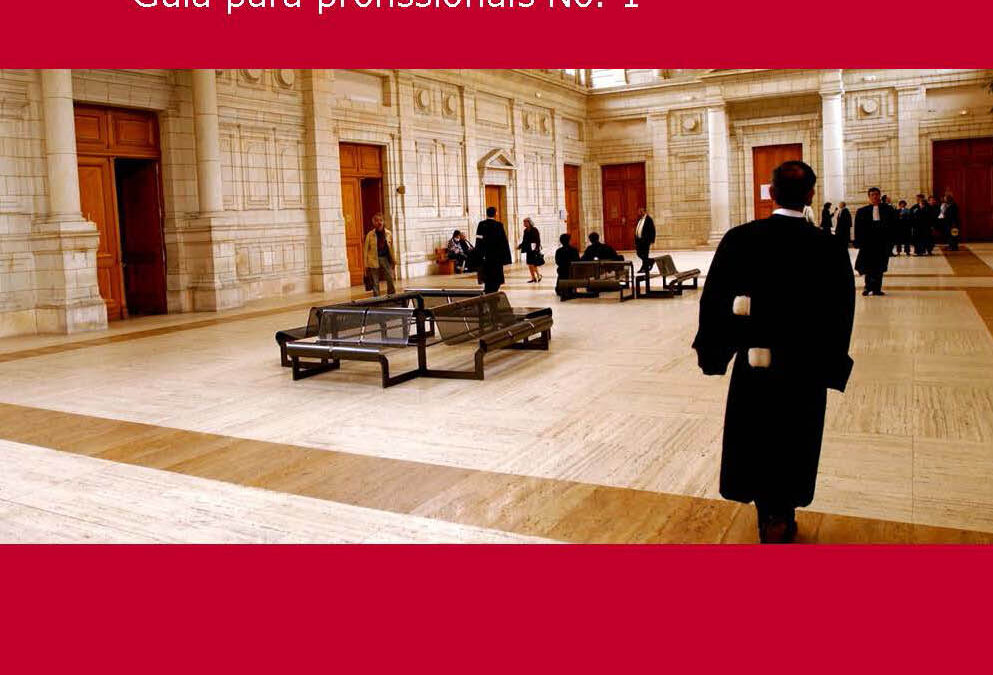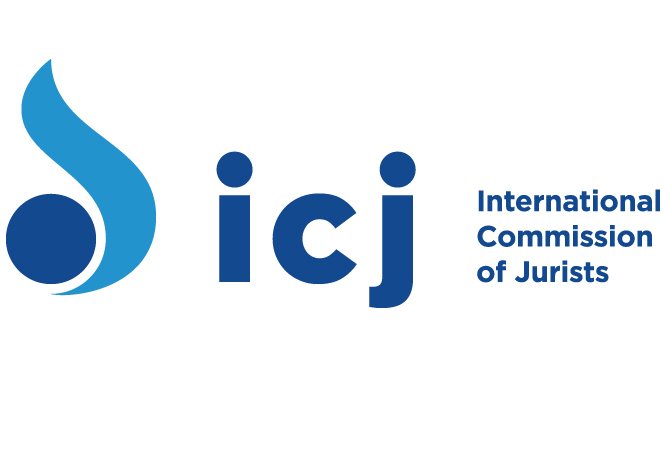
Apr 6, 2017
Today, the ICJ and the Guatemalan Association of Judges for Integrity, with the support of the Norwegian Association of Judges, launched two studies (in Spanish) on the state of justice in Guatemala.
The first study Judicial Independence in Guatemala evaluates judicial independence in the country, making reference both to international standards and Guatemalan law.
The study also analyses various domestic rulings related to judicial independence.
The second study Good Practices in Specialised Justice in Guatemala looks as the advances made and challenges faced by the Femicide and Major Risk Tribunals of Guatemala.
The study analyses the “Siekavizza” and “Plan de Sanchez” cases, amongst others.
Three Norwegian judges, who form part of the Norwegian Judges Human Rights Committee, attended the event.
These judges make two annual trips to Guatemala to assess the situation of judicial independence and impunity in Guatemala.
The following speakers made presentations: Guatemalan judge, Yassmín Barrios; Guatemalan Supreme Court of Justice Magistrate, Maria Eugenia Morales Aceña; Honduran Judge and ex-President of the Association of Judges for Democracy, Rubenia Galeano; vice-President of the Guatemalan Association of Judges for Integrity, Miguel Ángel Gálvez; and President of the Guatemalan Association of Judges for Integrity, Haroldo Vásquez.
La CIJ y la Asociación Guatemalteca de Jueces por la Integridad, con el apoyo de la Asociación de Jueces de Noruega, presentaron dos estudios sobre el estado actual del sistema de justicia en Guatemala.
El primer estudio La Independencia Judicial en Guatemala se centra en una evaluación de la independencia judicial en el país haciendo referencia a la normativa nacional e internacional.
El estudio lleva a cabo un análisis de sentencias nacionales relacionadas con la independencia judicial.
El segundo estudio Buenas Prácticas en la Justicia Especializada se centra en los avances y hallazgos de los Tribunales de Mayor Riesgo y los Tribunales de Femicidio.
Incluye un análisis de los casos “Siekavizza” y el “Plan de Sánchez”, entre otros.
En el foro estuvieron presentes una delegación de tres jueces Noruegos del Comité de Derechos Humanos de la Asociación de Jueces de Noruega, quienes realizan la primera de dos visitas anuales al país, para dar seguimiento a la situación de jueces independientes en Guatemala.
Además comentaron los estudios la jueza guatemalteca Yassmín Barrios; la Magistrada de la Corte Suprema de Justicia, María Eugenia Morales Aceña; el juez guatemalteco y Presidente de la Asociación Guatemalteca de Jueces por la Integridad, Haroldo Vásquez; y la jueza hondureña y Ex Presidenta de la Asociación de Jueces por la Democracia, Rubenia Galeano.
Guatemala-Independencia Judicial-Publications-Thematic reports-2016-SPA (Report in Spanish, PDF)
Guatemala-Feminicidio y Riesgo-Publications-Thematic Reports-2016-SPA (Report in Spanish, PDF)

Apr 6, 2017
La CIJ y la Asociación Guatemalteca de Jueces por la Integridad, con el apoyo de la Asociación de Jueces de Noruega, presentarán dos estudios sobre el estado actual del sistema de justicia en Guatemala.
El primer estudio La Independencia Judicial en Guatemala se centra en una evaluación de la independencia judicial en el país haciendo referencia a la normativa nacional e internacional.
El estudio lleva a cabo un análisis de sentencias nacionales relacionadas con la independencia judicial.
El segundo estudio Buenas Prácticas en la Justicia Especializada se centra en los avances y hallazgos de los Tribunales de Mayor Riesgo y los Tribunales de Femicidio.
Incluye un análisis de los casos “Siekavizza” y el “Plan de Sánchez”, entre otros.
En el foro estarán presentes una delegación de tres jueces Noruegos del Comité de Derechos Humanos de la Asociación de Jueces de Noruega, quienes realizan la primera de dos visitas anuales al país, para dar seguimiento a la situación de jueces independientes en Guatemala.
Además comentarán los estudios la jueza guatemalteca Yassmín Barrios; la Magistrada de la Corte Suprema de Justicia, María Eugenia Morales Aceña; el juez guatemalteco y Presidente de la Asociación Guatemalteca de Jueces por la Integridad, Haroldo Vásquez; y la jueza hondureña y Ex Presidenta de la Asociación de Jueces por la Democracia, Rubenia Galeano.
Guatemala-Independencia Judicial-Publications-Thematic reports-2016-SPA (informe en PDF)
Guatemala-Feminicidio y Riesgo-Publications-Thematic Reports-2016-SPA (informe en PDF)

Mar 24, 2017
The ICJ published today a Serbian translation of its Practitioners Guide no. 6 on Migration and International Human Rights Law.
This updated edition of the Practitioners Guide analyses the protection afforded to migrants by international law and the means to implement it at national and international levels.
The ICJ Guide synthesizes and clarifies international standards on key issues, in particular:
- the rights and procedures connected to the way migrants enter a country and their status in the country of destination;
- human rights and refugee law constraints on expulsion;
- the human rights and refugee law rights linked to expulsion procedures;
- the rights and guarantees for administrative detention of migrants;
- rights connected to work and labour; and
- rights to education, to the highest attainable standard of health, to adequate housing, to water, to food, and to social security.
Universal-PG 6 Migration-Publications-Practitionners’ Guides Series-2016-SER (full guide in PDF)

Mar 17, 2017
The ICJ has now published a Portuguese translation of its Practitioner’s Guide N°1 International Principles on the Independence and Accountability of Judges, Lawyers and Prosecutors.
The Guide outlines the roles to be played by a strong legal profession, an independent judiciary and an impartial and objective prosecuting authority.
Part one of this guide provides an analysis of the law and concrete examples drawn from international practice. Part two includes relevant global and regional standards on the topic.
Universal-PG N°1 Portugues-Publications-Practitioners’ Guide series-2017-POR (full guide, in PDF)

Jan 6, 2017
The ICJ has published another translation of its Practitioner’s Guide N°1 International Principles on the Independence and Accountability of Judges, Lawyers and Prosecutors.
The Guide outlines the roles to be played by a strong legal profession, an independent judiciary and an impartial and objective prosecuting authority.
Part one of this guide provides an analysis of the law and concrete examples drawn from international practice. Part two includes relevant global and regional standards on the topic.
References to international decisions, reports, texts of treaties and other international standards allow the Guide to be used as a reference book by legal practitioners and policy makers in Uzbekistan.
Uzbekistan-PGN°1-Publications-Practitioners’ Guide Series-2017-UZB (full text in PDF)









